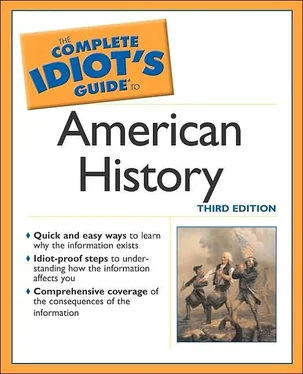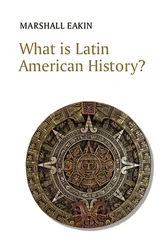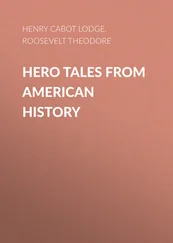Jefferson’s second term was marred by the Embargo Act and a breakdown in relations with Great Britain.
Impressment was the practice—common, in England during the 18th and early 19th centuries—of compelling—even kidnapping—individuals to serve in the military, especially the navy.
Nullification would become a major issue in the decade before the Civil War, when South Carolina’s John C. Calhoun echoed Jefferson and asserted that the states could override (“nullify”) any federal laws they judged unconstitutional. Nullification attacked the foundation of American nationhood.
Born in Newark, New Jersey, Aaron Burr distinguished himself in the Revolution, made a prosperous marriage (1782) to the widow of a former British officer, and set up a successful law practice in New York City. He entered the U.S. Senate in 1791 and served as U.S. vice president from 1801 to 1805.
Jefferson distrusted Burr and dropped him from the Democratic-Republican ticket in the 1804 race. Thus rejected, Buff ran for New York governor, garnering support (in part) by suggesting that he would aid certain Federalist radicals in their effort to break New York free of the Union. Burr was attacked in print by Alexander Hamilton, and when Burr lost the election, he challenged his enemy to a duel on July 11, 1804. Hamilton was mortally wounded, and Buff received the dubious distinction of becoming the first (and thus far only) U.S. vice president charged with murder.
Burr ultimately was acquitted, completed his vice presidential term with dignity, but then entered into a conspiracy of bewildering proportions. Even now, it is impossible to determine just what Burr intended to do, but he seems to have envisioned creating an empire stretching from the Ohio River to Mexico—an empire over which he would rule. Burr conspired with U.S. army general James Wilkinson to incite the West to a rebellion supported by Mexico. Before Burr could take significant action, however, Wilkinson betrayed him to President Jefferson. Chief justice John Marshall presided over Burr’s trial for treason, pointing out to the jury that Burr had not committed any acts of treason, but had been shown only to have intended to commit such acts. Marshall declared that one could not be found guilty on account of one’s intentions. After 25 minutes of deliberation, the jury acquitted Burr, who fled to Europe and did not return to the United States until May 1812. He lived out the remainder of his life in retirement.
The Louisiana Purchase added 90,000 square miles 61 trans-Mississippi territory to the United States. Purchased at a cost of 60 million francs (about $ 15 million), it was a great I estate bargain at four cents an acre.
Jefferson, fascinated like so many others with the idea of finding a Northwest Passage connecting the Mississippi with the Pacific, planned an expedition to Louisiana Territory long before the purchase, choosing his trusted secretary Meriwether Lewis (1774-1809) to lead the expedition. Lewis asked his close friend William Clark (1770-1838) to serve as co-captain.
The expedition left Saint Louis on May 14, 1804, and reached central North Dakota in November. Accompanied by a remarkable Shoshoni woman Sacajawea (ca. 1784-1812). who served as translator and guide, the group explored the Rockies and reached the Continental Divide on August 12, 1805. Lewis and Clark were now convinced that the Northwest Passage did not exist. However, they pressed on, reaching the Columbia River and the Pacific in November 1805. They returned to Saint Louis on September 23, 1806.
If the expedition failed to find the nonexistent Northwest Passage, it did supply a wealth of information about what had been a great blank space on the map of North America.
Washington Burns, a Nation Is Reborn
(1812-1814)
In this Chapter
Early disasters and the near-collapse of the West
Naval triumphs and Western victories
The burning of Washington and the defense of Baltimore
The Battle of Lake Champlain and the Treaty of Ghent
Jackson as the “Hero of New Orleans”
Late in the summer of 1811, Tecumseh left the Ohio country for the South to expand his alliances to the Chickasaws, Choctaws, and Creeks. Except for a militant Creek faction known as the Red Sticks, these groups wanted no part of Tecumseh’s enterprise. Worse, William Henry Harrison used Tecumseh’s absence to move against Tecumseh’s headquarters at Tippecanoe. Having assembled a ragtag army of 1,000 men—including 350 U.S. regulars, raw Kentucky and Indiana militiamen, and a handful of Delaware and Miami Indian scouts—Harrison attacked outside of Tippecanoe on November 7, 1811. Losses were equally heavy on both sides—about 50 whites and 50 Indians slain, but the battle cost Tecumseh’s followers their headquarters and prompted many of them to desert Tecumseh. Thus the settlers of the West had their first taste of a major fight and a significant victory. Of fighting, they were about to get more than their fill during the next three years. Victories, however, would be very few.
The War of 1812 is one of those historical events nobody thinks much about nowadays. But earlier generations of American schoolchildren were taught that it was nothing less than the “second War of Independence,” righteous conflict fought because the British, at war with Napoleon and in need of sailors for the Royal Navy, insisted on boarding U.S. vessels to impress American sailors into His Majesty’s service. Actually, the U.S. declared war on Britain on June 1.9, 1812, three days after the British had agreed to stop impressing seamen. The real cause of the war was not to be found on the ocean, but in the trans-Appalachian West. In Congress, the region was represented by a group of land-hungry “War Hawks,” spearheaded by Representative Henry Clay of Kentucky.
The War Hawks saw war with Britain as an opportunity to gain relief from British-backed hostile Indians and as a chance to gain what was then called Spanish Florida—a “parcel” of land extending from Florida west to the Mississippi River. Spain, which held this land, was allied with Britain against Napoleon. War with Britain, therefore, would mean war with Spain, and victory would mean the acquisition of Spanish Florida, which would complete an unbroken territorial link from the Atlantic, through the recently purchased Louisiana Territory, clear to the Pacific.
The trouble was that President James Madison, elected to his first term in 1808, did not want war. He renewed the diplomatic and economic initiatives Jefferson had introduced, but, facing a tough reelection battle in 181.2, he at last yielded to Clay and the other leading War Hawks, John Calhoun of South Carolina and Kentucky’s Richard Mentor Johnson, President Madison asked a willing Congress for a declaration of war.
Since colonial times, Americans shunned large standing armies. Now, having declared war, the country had to fight it—with an army of only 12,000 regular troops scattered over a vast territory. The troops were led by generals, most of whom had achieved their rank not through military prowess but through political connections. As to the nation’s navy, its officers were generally of a higher caliber, but it was a very puny force, especially in comparison with the magnificent fleets of the British. Despite these terrible handicaps, U.S. planners developed a three-pronged invasion of Canada: a penetration from Lake Champlain to Montreal; another across the Niagara frontier; and a third into Upper Canada from Detroit.
Читать дальше












